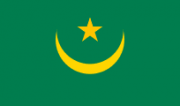
Bareina, Mauritania, (Source: Ferdinand Reus/Wikimedia Commons)

MAURITANIA
 Our Concerns
Our Concerns
- Judicial harassment of human rights defenders, in particular anti-slavery activists;
- Lack of effective policy to fully eradicate the practice of slavery;
- Frequent practice of torture and inhuman conditions of detention.
 Upcoming
Upcoming
- July-August 2018: Review of Mauritania by the Committee against Torture.
In 2017, Mauritania underwent important institutional changes. The referendum announced by the president in 2016 proposing a constitutional reform to abolish the Senate and change the country’s flag and anthem was held on August 6, 2017. Voters endorsed the president’s reforms, with 85 percent in favour, while the opposition largely boycotted what they considered an attempt by the head of state to strengthen his power over the legislative branch of government.
Meanwhile, fundamental rights such as the rights to freedom of conscience, opinion, expression, peaceful assembly and association continue to be severely restricted. In November 2017, the president’s cabinet approved a draft amendment to the Penal Code’s provision on blasphemy, which eliminates the possibility of substituting a prison term for the death penalty if the offender repents. This reform was taken following the release of Mohamed Cheikh Ould Mkhaitir, a blogger who had been sentenced to death for apostasy after publishing an article criticising the use of religion as a basis for racial discrimination against Haratine people in the country. Ould Mkhaitir was released after the Nouadhibou Court of Appeals quashed his sentence on November 8, 2017.
The case of Ould Mkhaitir as well as the continuing practice of reprisals against anti-slavery activists show that the issues of racial discrimination, poverty and the subjugation of Haratine and other minorities remain pressing. In 2017, local activists denounced the continuing practice of slavery in the country, contradicting the official state narrative that the practice had been eradicated after its abolition in 1981 and subsequent criminalisation in 2007.

Persistent reprisals against anti-slavery activists
In 2017, Alkarama continued to receive reliable information indicating the persistent persecution of individuals belonging to the anti-slavery movement. This persecution takes the form of judicial harassment, arbitrary arrests and ill-treatment in detention, particularly against groups like the Resurgence of the Abolitionist Initiative (IRA-Mauritania) movement, whose members are from the Haratine minority and work to end the practice of slavery in the country. The IRA-Mauritania group was consistently denied accreditation as an association by the Mauritanian authorities, without any valid justification, in violation of their right to freedom of association.
Furthermore, in 2017, anti-slavery activists and peaceful demonstrators continued to suffer from reprisals for their activism. Alkarama received numerous testimonies of individuals who were kept in incommunicado detention for several days and subjected to ill-treatment and abuses. Most of them were accused of being “members of a non-registered organisation”, “armed gathering”, “and violence against law enforcement officials” or “rebellion”. In some cases, such reprisals were triggered by the individuals’ cooperation with the UN human rights mechanisms. In its September 20, 2017 report, the UN Secretary-General denounced these acts of reprisals against anti-slavery activists as triggered by their cooperation with UN experts, particularly the Special Rapporteur on extreme poverty and human rights, who visited the country in May 2016.
“In 2017, anti-slavery activists and peaceful demonstrators continued to suffer from reprisals for their activism.”
Furthermore, on November 24, 2017, the Working Group on Arbitrary Detention (WGAD) issued an Opinion concerning 10 members of the IRA who were arrested between June and July 2016. These individuals were detained in secret, tortured and sentenced to prison terms ranging from 3 to 15 years for “armed gathering”, “violence against law enforcement officials”, “rebellion”, and being “members of a non-registered organisation”. The group of UN experts denounced the arbitrary nature of their detention, and recalled that they were carrying out their activities as human rights defenders peacefully and never called for the use of violence. The experts concluded that the accusations demonstrated that they were prosecuted for having “chosen to play this role within their society and for nothing else”. Although eight of the human rights defenders were released, the WGAD expressed concern over the ongoing detention of Moussa Biram and Abdallahi Matala Saleck, and called upon their immediate release by the Mauritanian authorities. Lastly, in its decision, the group said it was “surprised” that the authorities did not respond to their letter, considering they were more cooperative in the past.

Frequent practice of torture and climate of impunity
The use of torture and ill-treatment to obtain confessions, as well as the inhumane conditions of detention remain concerning. On March 2, 2017, during the 34th session of the Human Rights Council, the UN Special Rapporteur on torture and other cruel, inhuman or degrading treatment, Nils Melzer, presented the conclusions of the visit carried out by his predecessor Juan Méndez from January 25 to February 3, 2016. The Special Rapporteur highlighted issues including the persistent practice of torture, the poor conditions of detention for prisoners, and the impunity of perpetrators of torture. He also reminded the authorities of the necessity to take “urgent measures to enforce existing legislation and the safeguards”.
“The use of torture and ill-treatment to obtain confessions, as well as the inhumane conditions of detention remain concerning.”
The UN expert made 30 recommendations, and stated that although “acts of torture and ill-treatment are no longer rampant in Mauritania they still occur frequently, particularly in the early stages of arrest and interrogation, often for the purpose of eliciting confessions”. He stressed that “impunity for acts of torture and ill-treatment remains the rule rather than the exception”.
In addition, the Special Rapporteur expressed concern about the “almost total absence of investigations into allegations of torture and ill-treatment” and the unwillingness of the judges to prosecute the perpetrators of such acts. He further recalled that it was “the State’s international obligation to prevent torture and ill-treatment” and that it was imperative to prosecute public officials who order, disregard, or cover up torture and blatantly abuse their superior authority.
Furthermore, the UN expert – whose predecessor visited several places of detention across the country, including the only women’s prison and a high-security prison – noted the unsanitary and unhygienic conditions, the poor quality of food as well as the limited access of detainees to healthcare. He also shed light on the extreme overcrowding and the impact this has on prisoners’ living conditions. The expert concluded that the conditions of detention in Mauritania often amount to cruel, inhuman or degrading treatment and recommended that the authorities introduce alternative measures to incarceration and the possibility of conditional liberty to reduce overcrowding in detention facilities.
Lastly, on June 26, 2017, Alkarama submitted its contribution to the List of Issues prepared by the Committee against Torture (CAT) ahead of the review of Mauritania in 2018. After reviewing the state’s report, Alkarama raised a total of 25 questions on different concerns, including the lack of effective legislative measures to protect individuals from torture and ill-treatment and the impunity of perpetrators. Alkarama also stressed that torture and ill-treatment was used against human rights defenders as a form of reprisals, and denounced the lack of effective and independent complaint mechanisms for victims of torture.

Global Alliance of National Human Rights Institutions recommends downgrading of National Human Rights Commission to status B
During its November 2017 session, the Subcommittee on Accreditation (SCA) of the Global Alliance of National Human Rights Institutions recommended that the Mauritanian National Human Rights Commission (CNDH) be granted status “B” due to its lack of full compliance with the Paris Principles. This decision means that the CNDH, which previously held an “A” status, has been downgraded. The CNDH officially contested the SCA’s recommendation.
The SCA is the organ in charge of assessing the compliance of national human rights institutions (NHRIs) with the Paris Principles, which set the standards to ensure that these institutions are independent and autonomous from their country’s government, and that they are granted adequate power to promote and protect human rights effectively. Prior to this review, Alkarama submitted its own evaluation of the NHRI’s compliance with these principles, ensuring that civil society’s perspective is duly taken into account by the SCA.
The recommendation of the SCA to downgrade the Mauritanian NHRI followed a lengthy review process which started in July 2016, when Alkarama submitted a report to the SCA in view of the CNDH’s reaccreditation. After a consultation of local NGOs, Alkarama submitted a joint report stressing the CNDH’s lack of compliance with the Paris Principles, and concluding that, since 2011, the institution had not met the requirements to be granted an “A” status.
Subsequently, in February 2017, the SCA published a report containing preliminary observations in which it highlighted several important shortcomings in the law establishing the commission as well as its lack of independence vis-à-vis the executive. The SCA also noted that the selection and appointment process of the CNDH members was not sufficiently transparent and open, and therefore not based on merit and experience. Moreover, as highlighted in Alkarama’s report, the CNDH’s lack of independence from the executive caused distrust among many NGOs, especially those working on subjects considered as sensitive, such as slavery, torture or arbitrary detention. In its conclusions, however, the SCA decided to postpone the review of the CNDH to its second session of 2017.
On October 27, 2017, Alkarama submitted another report analysing the new CNDH law issued in July 2017, which revised the status and functioning mode of the CNDH in order to address the concerns previously raised by the SCA. Alkarama stressed in the report that the new law failed to address key issues, including ensuring the CNDH’s independence from the government and the openness and transparency of the selection process. In November 2017, the SCA decided to recommend that the institution be downgraded to status “B”.